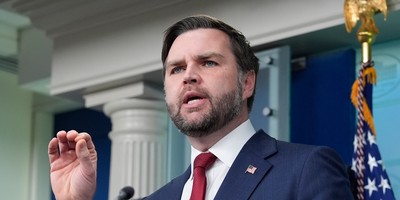Okay, class. On July 2, 1776, the Second Continental Congress, convened in Philadelphia, voted in favor of a resolution submitted by Virginian Richard Henry Lee asserting the 13 American colonies’ independence from Great Britain.
That was a courageous decision that changed not just North America but the world.
So here is your question: Why now do we celebrate July 4, not July 2, as Independence Day in the United States of America?
Were that question posed to any high school class in the land, here’s fervently wishing that most students would know that this July 4 will bring picnics, parades, baseball games, and massive fireworks displays because it is the 241st anniversary of the Continental Congress’ official release of the Declaration of Independence, which happened two days after the vote to part ways with London.
Authored by Virginian Thomas Jefferson, at the urging of his friend John Adams of Massachusetts, the Declaration was much more than the birth announcement of a new republic. It enunciated a revolutionary principle for governing based on the natural rights of individuals as opposed to the vested interests of any ruling conglomerate or elite.
The Declaration of Independence is the taproot of American exceptionalism that survives to this day. Another exercise in wishful thinking is that today’s average American student could analyze the Declaration of Independence and discuss why it is seminally exceptional. (Exceptional: Sample synonyms—extraordinary, special, phenomenal.)
Alas, however, the National Assessment of Educational Progress has consistently shown that no more than one-fourth of U.S. grade-schoolers have even a minimal grasp of historical knowledge. Furthermore, in colleges and universities, the teaching of history has shrunk to the extent that, in many cases, college students can prepare to become high-school history teachers without taking so much as one stand-alone course in American history.
Recommended
This Independence Day would be an appropriate time for parents and their children to take a little time before the family cookout to read the Declaration of Independence together, which is short and available online, and then to discuss what made it special as a creed for liberty-loving revolutionaries. The bulk of the text details the colonists’ objections to the king of England’s abuses of power. In just the opening two paragraphs, Jefferson made the moral case for individual rights restraining runaway government.
“We hold these truths to be self-evident” is a powerful line, because it introduces the idea of higher laws of right and wrong on which civil law should draw and which authority must respect or be held accountable by the people. Indeed, when a government sets out to crush the moral truths that “all men are created equal” and possess the rights to “life, liberty, and the pursuit of happiness,” and when it fails to secure “the consent of the governed” for its enactments, the people have a right to “alter or abolish” that regime. Power-grabbers, beware!
The Founders had a message for all mankind, not just King George III. Up top, the Declaration acknowledged that having “a decent respect to the opinions of mankind” motivated the Founders to state their reasons for breaking from Britain and becoming a new nation. The Declaration’s evocation of natural rights put despots of all stripes on notice worldwide as to the inherent power of the people.
The Declaration is the guiding light behind the U.S. Constitution’s safeguarding of human liberty, as enumerated in the Bill of Rights, as well as the checks and balances of power exercised by the executive, legislative, and judicial branches of government. Simultaneously, it continues to bring inspiration to people around the world seeking to overthrow tyrannies of the left or right. Dozens of populist movements have issued declarations of independence closely following the American model.
Rising generations in our own country may decide for themselves if the Declaration of Independence still drives a spirit of American exceptionalism. However, first they should study the document closely and explore the historical context in which it was written, rather than meekly accepting leftist instructors’ incessant smearing of American ideals and influence as irredeemably evil.

























Join the conversation as a VIP Member